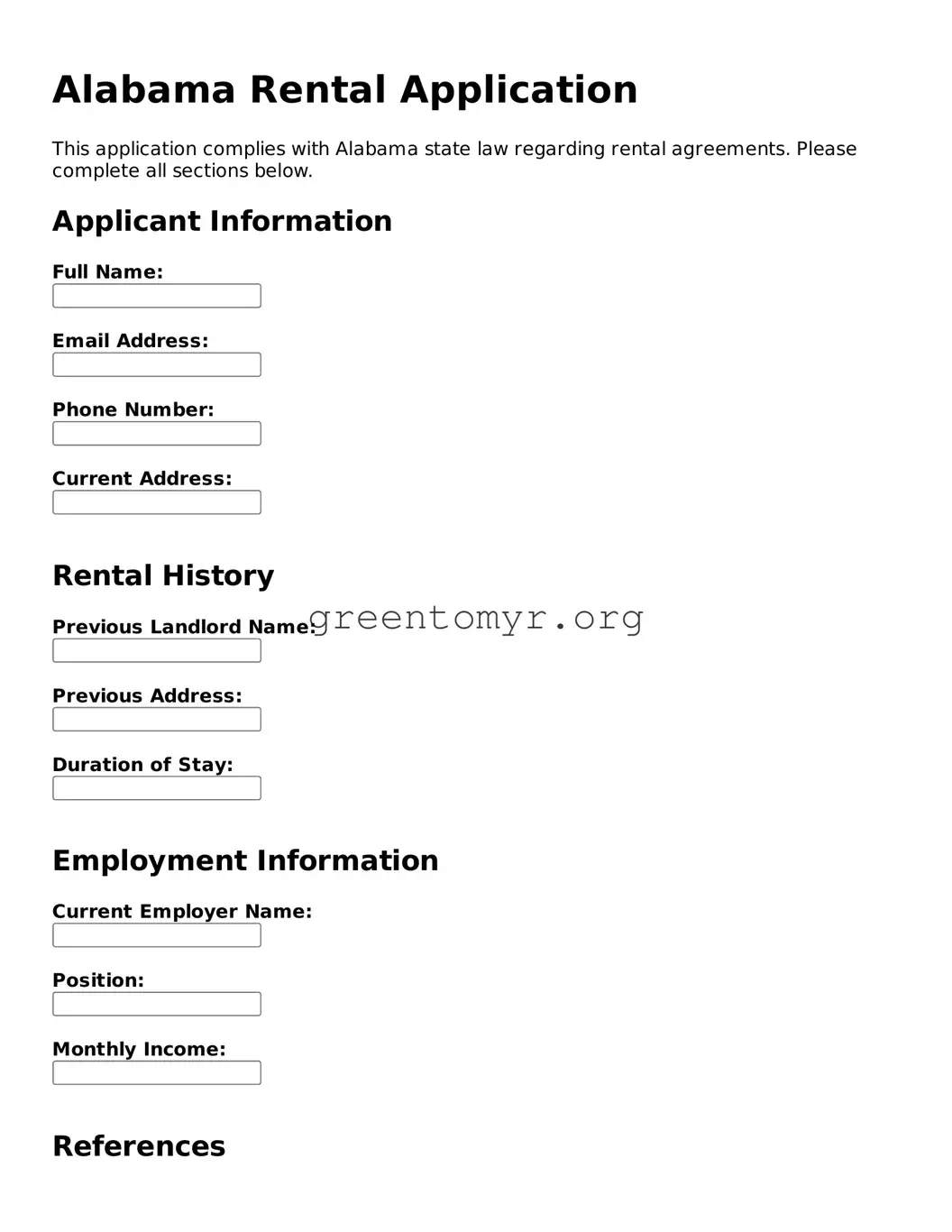The Alabama Rental Application form is a document used by landlords and property managers to collect essential information from prospective tenants applying to rent a property. This form typically includes details such as personal information, rental history, employment information, and references. It helps landlords assess the suitability of applicants.
The rental application generally requires:
-
Personal identification details (name, date of birth, Social Security number)
-
Contact information (phone number, email address)
-
Current and previous addresses (including landlord contact information)
-
Employment history (current job, previous jobs, income)
-
References (personal and professional)
Additional information may include consent for a credit check and background screening.
Can I be denied a rental application?
Yes, a rental application can be denied for various reasons. Common reasons include:
-
Poor credit history
-
Incomplete application
-
Insufficient income to cover rent
-
Negative rental history (such as evictions or late payments)
-
Criminal background that does not meet the landlord's criteria
Landlords are required to comply with fair housing laws and must provide a reason for the denial if requested.
Is there a fee associated with the rental application?
Many landlords charge a non-refundable application fee to cover the costs of background and credit checks. This fee can vary widely. It’s important to ask about the amount and what it covers before submitting your application.
How long does it take to process a rental application?
The processing time for a rental application can vary depending on the landlord or property management company. Typically, it may take anywhere from a few hours to several days. Factors that influence this timeline include the thoroughness of the screening process and how quickly the applicant provides the necessary information.
Can I make changes to my rental application after submission?
After submitting your rental application, making changes can be challenging. However, if you realize that you need to correct an error or provide additional information, it’s best to contact the landlord or property manager immediately to discuss your situation. They may allow you to update your application if it hasn’t yet been processed.
What should I do if my rental application is denied?
If your application is denied, you have the right to ask the landlord for the reason. Understanding the denial can help you improve your chances in future applications. Consider taking the following steps:
-
Address any issues noted in the denial.
-
Obtain a copy of your credit report to review for inaccuracies.
-
Consider providing a co-signer, if permissible, or find a property with different qualifying criteria.
Are there any specific laws regarding rental applications in Alabama?
Alabama law requires landlords to comply with federal, state, and local fair housing laws. These laws prohibit discrimination based on protected characteristics such as race, color, national origin, religion, sex, familial status, and disability. Ensuring your application process adheres to these standards is essential for landlords.
